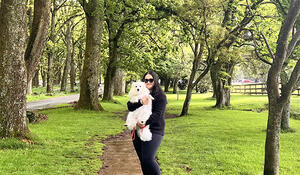
- Qualification: Master of Geospatial Science degree
- Tertiary Institute: Auckland University of Technology
- Year 13 school subjects: English, Statistics, Chemistry, Biology, Geography
- Secondary school: Palmerston Girls’ High School
Why did you choose to study GIS?
I began my studies in Geography, but a lecturer’s enthusiasm for GIS convinced me to take a course in it. After a few courses, I discovered I loved the problem-solving nature of GIS and its ability to visually analyze spatial issues. By my final year, I had switched my degree to focus on GIS, which ultimately inspired me to pursue a master’s to deepen my expertise. It was the perfect blend of analytical thinking and creativity, and I became passionate about using geospatial analysis to uncover new insights.
How important is GIS for your future career options, and why?
GIS is vital for my future career because it lets me explore diverse fields and tackle complex challenges. I'm especially passionate about using it to protect the environment and wildlife in New Zealand. The ability to analyze and visualize spatial data makes it a powerful tool for conservation, allowing me to contribute to impactful projects while keeping my options open to work in various domains.
How has studying GIS shaped your career goals?
GIS has shown me how we can answer questions I never thought possible. The ability to visualize complex data and uncover patterns has fueled my passion for using GIS to tackle real-world issues, particularly in environmental conservation, wildlife protection, and addressing social challenges.
What advice would you give to future students considering adding a GIS component to their studies?
Give it a try! GIS is a versatile field that’s increasingly relevant in various disciplines, from environmental science and urban planning to business analytics and health studies. The skills you gain are highly transferable and can open up opportunities you may not have considered before. Even if your primary focus is in another area, having GIS experience can complement your interest.
You applied successfully for a Toitū Te Whenua LINZ external tertiary GIS scholarship. What difference did this make to you and your GIS study courses?
Not only did the scholarship provide invaluable financial support, but it also inspired a new level of dedication and pride in my work. It validated my passion for the field and motivated me to push myself further, knowing that I was recognized and supported by a leading organisation in the geospatial industry.